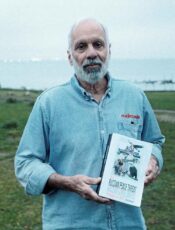Many Indigenous people and alliances were outraged at MUPP and Pe'rez, and then again when he supported the U.S.-backed military coup in Bolivia in November 2019. When Luis Arce won the October 2020 election numerous Ecuadorian Indigenous leaders were invited to the inauguration but Pe'rez was not. Pe'rez had supported the coup. How Ecuador's US-backed, coup-supporting 'ecosocialist' candidate Yaku Pe'rez aids the right-wing | The Grayzone
Quite similar circumstances to the Ecuadorian coup attempt occurred in Venezuela, on April 11, 2002. Right-wing groups kidnapped President Hugo Chavez, declared a new government, which the U.S. immediately backed. Within 48 hours, thousands of citizens and loyal soldiers freed Chavez.
Yet again, this time in the original "Banana Republic", Honduras, November 2009. Nobel Peace Prize recipient Barack Obama recognized the military coup as yet another "change of government" when Pentagon's trained generals overthrew capitalist rancher President Manuel Zelaya. He had become convinced the poor needed better conditions, and ALBA (Bolivarian Alliance for the Peoples of Our America), which he joined, in 2008. History of US intervention in Honduras | Honduras | The Guardian
Hugo Chavez and Fidel Castro had founded ALBA , in 2004, hoping to consolidate regional economic integration based on a vision of social welfare, bartering and mutual economic aid. Correa brought Ecuador into ALBA, in 2009. The alliance has stood firm against U.S. subversion in Latin America, and cultivated relations with Russia, China and Iran.
"Correa rejected IMF and World Bank policies, which had made Ecuador numerous loans to entrap the country in debt, a game plan for Western countries to dominate the global economy. Ecuador's debt was $14 billion in 1980, the country paid back $7 billion, and it still owed $14 billion. The IMF demanded cuts in wages and state budgets, that 80% of the oil revenues go to debt payment, or it would use international courts to seize their fleet and their contents," wrote Stansfield Smith, a COHA scholar. Ecuador's Accomplishments under the 10 Years of Rafael Correa's Citizen's Revolution - COHA
Correa renounced one-third of the then existing debt as illegitimate interest. He imposed significant taxes on the rich, including on capital flight. These measures generated $1 billion in revenues in three years. He compelled the Central Bank to repatriate billions in assets held abroad, renegotiated more favorable oil contracts with multi-nationals, which he used to triple investments in infrastructure and public services. Correa diversified the economy so that non-oil exports accounted for two-thirds of export income. These measures enabled Ecuador to earn a 4.2% annual growth from 2007-2015, even during the international financial crisis brought on by Wall Street corruption.
Correa's government invested $20 billion invested in education, making all education free for everyone. Low-income students are given free school supplies, books, uniforms, and meals. More than 300,000 children who used to have to work have gone back to school.
To preserve Original Peoples' identity, the government provided new schools in native languages, and fostered public TV and radio stations promoting programs in Quechua and other languages. The 2013 Media Law gave the indigenous communities greater access to community media. By December 2014, 14 radio frequencies, combined with funding and training, have been assigned to each of the country's indigenous groups.
Ecuador's minimum wage doubled, from $170 a month to $375, one of the highest in Latin America. Companies cannot pay dividends until all employees earn a living wage. The labor of homemakers, contributing to 15% of the GDP, is now legally recognized. Consequently, 1.5 million homemakers receive social security benefits, including disability compensation and a pension.
Correa invested $16 billion in quality free health care. In the 40 years prior to the Citizens Revolution, not one new public hospital was built in any of the main cities. During Correa's time, 13 new hospitals were constructed and 18 more were underway. This health system added 34,000 medical professionals. Thanks to free health care (still a dream in the U.S.) and greater access and services, visits to the doctor have almost tripled in ten years.
The United Nations recognizes only eight countries as meeting the two minimum criteria for sustainable development. In the Americas, there are only two, Ecuador and Cuba. Ecuador made major advances in converting to renewable energy, one of the highest percentages of renewable energy (85-95%). By 2015, Ecuador had cut the rate of deforestation in half.
It is now illegal for employers to discriminate due to sexual orientation. Same-sex unions are legal and a gender identity law allows citizens to state on their ID their gender identity instead of the sex given at birth.
Affirmative action laws require companies to reserve 4% of jobs for people with disabilities, and other quotas for minority ethnic groups, indigenous and Afro-descendants.
Four of the five TV channels were owned by the four largest banks. Correa's government backed a referendum that prohibited banks from owning the media. Airwaves were divided into three groupings: a third private, a third state-owned, and one third for community grassroots outlets. A company cannot own more than one AM station, one FM station and one television station.
During 2016, the nation suffered a recessions due to lower oil prices, and a severe earthquake that cost 668 people's lives and $3.3 billion in damages. Still, when Correa ended his term the growth rate was 3.3. Poverty had been reduced from 37.6% to 22%.
When Correa won power, the richest 10% accounted for 42 times as much wealth as the poorest 10%. At the end of his terms, the gap was cut in half, one of the most dramatic reductions in inequality in Latin America.
Next Page 1 | 2 | 3 | 4 | 5 | 6 | 7 | 8
(Note: You can view every article as one long page if you sign up as an Advocate Member, or higher).





